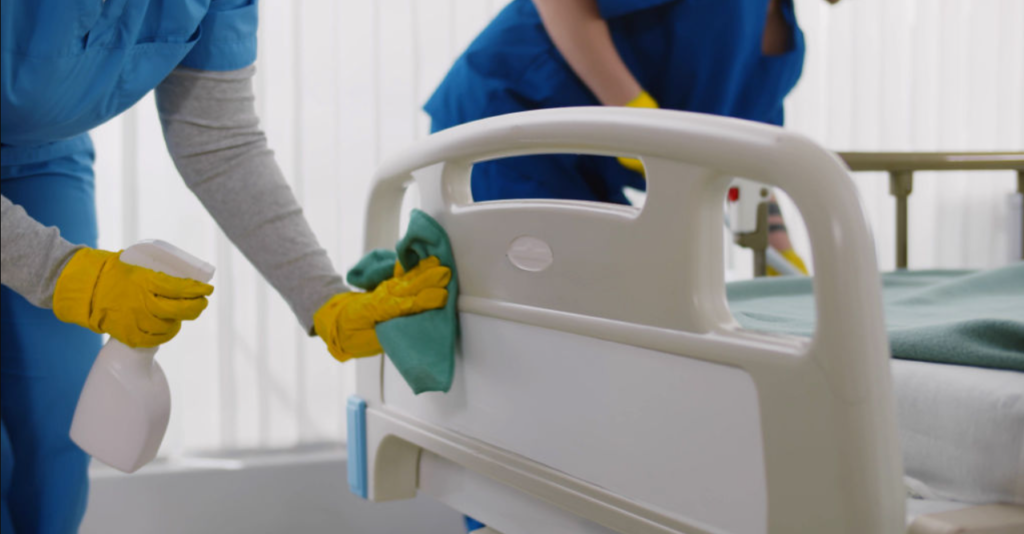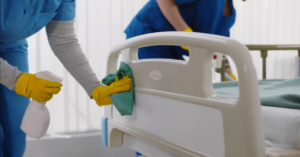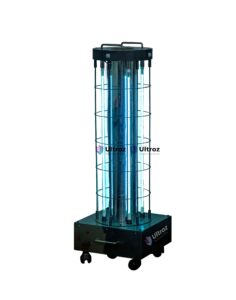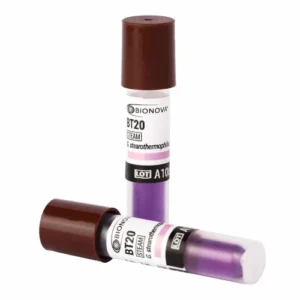In the medical field, maintaining a sterile environment is paramount. Disinfectants play a crucial role in preventing the spread of infections and ensuring the safety of both patients and healthcare providers. For doctors, the use of disinfectants is not just a routine practice but a critical aspect of patient care. This article explores the numerous advantages of using disinfectants in medical settings and underscores their importance in healthcare.
1. Cost-Effectiveness
Preventing infections through the use of disinfectants can lead to significant cost savings for healthcare facilities. Treating infections, especially those acquired in hospitals, can be expensive and resource-intensive. By reducing the incidence of infections, disinfectants help to lower healthcare costs, improve patient outcomes, and optimise the use of medical resources.
2. Enhanced Efficiency in Practice
Disinfectants come in various forms, including sprays, wipes, and liquids, providing doctors with versatile options for different applications. This versatility allows doctors to quickly and effectively disinfect a wide range of surfaces, including medical equipment, floors, walls, and countertops. By using the appropriate form of disinfectant for each task, doctors can ensure thorough sanitization, which helps maintain a high level of hygiene throughout the healthcare facility and supports efficient patient care.
3. Commitment to Sustainable Healthcare
Modern disinfectants are designed to be environmentally friendly, which is advantageous for doctors who are committed to sustainable healthcare practices. By using eco-friendly disinfectants, doctors can uphold high hygiene standards while reducing the environmental impact of their practices. This balance not only contributes to a healthier planet but also aligns with the ethical responsibilities of healthcare professionals to promote overall well-being.
4. Peace of Mind
Finally, the use of disinfectants provides peace of mind for doctors, patients, and their families. Knowing that rigorous disinfection protocols are in place reassures everyone that the risk of infection is being actively managed. This peace of mind is invaluable in creating a positive healthcare experience and fostering trust between patients and healthcare providers.
5. Infection Control
One of the primary advantages of using disinfectants is their ability to control infections. Hospitals and clinics are breeding grounds for bacteria, viruses, and fungi, which can lead to hospital-acquired infections (HAIs). Disinfectants effectively kill these pathogens on surfaces, reducing the risk of transmission. By regularly disinfecting surfaces, medical equipment, and hands, doctors can significantly lower the incidence of HAIs, ensuring a safer environment for patients and staff.
6. Patient Safety
Ensuring patient safety is a top priority for doctors. Disinfectants play a crucial role in protecting patients from infections during medical procedures. Surgical instruments, examination tables, and other medical devices must be thoroughly disinfected to prevent cross-contamination. Using high-quality disinfectants helps to eliminate harmful microorganisms, providing a sterile environment that minimises the risk of infections and promotes faster recovery for patients.

7. Healthcare Provider Protection
Doctors and healthcare workers are at constant risk of exposure to infectious diseases. Disinfectants help protect them by reducing the presence of pathogens on surfaces they frequently touch. Regular disinfection of workstations, medical instruments, and personal protective equipment (PPE) helps to create a safer working environment. By minimising the risk of infections, disinfectants contribute to the overall well-being of healthcare providers, allowing them to perform their duties more effectively.
8. Compliance with Health Standards
Healthcare facilities are subject to strict health standards and regulations. Compliance with these standards is essential to maintain the facility’s reputation and avoid legal issues. The use of disinfectants is a fundamental aspect of meeting these health standards. Regular disinfection ensures that the facility adheres to guidelines set by health authorities, demonstrating a commitment to patient safety and quality care.
9. Preventing Outbreaks
In medical settings, outbreaks of infectious diseases can have severe consequences. Disinfectants help prevent outbreaks by eliminating pathogens before they can spread. During an outbreak, rigorous disinfection protocols are implemented to contain the infection and prevent it from spreading to other patients and staff. Effective use of disinfectants is crucial in breaking the chain of infection and controlling the situation swiftly.
10. Enhancing Professional Reputation
For doctors, maintaining a clean and sterile environment reflects their commitment to excellence in patient care. The use of disinfectants enhances the professional reputation of healthcare providers by showcasing their dedication to safety and hygiene. Patients are more likely to trust and feel confident in the care provided by doctors who prioritise cleanliness and infection control.
Frequently Asked Questions
1. How often should disinfectants be used in a medical setting?
Disinfectants should be used regularly, depending on the level of contamination and usage. High-touch surfaces and medical equipment should be disinfected multiple times a day, while less frequently used areas can be sanitised daily or as needed.
2. Are there any side effects of using disinfectants?
When used correctly, disinfectants are safe and effective. However, overuse or improper handling can lead to skin irritation or respiratory issues. It is essential to follow the manufacturer’s instructions and use personal protective equipment when necessary.
3. Can natural disinfectants be as effective as chemical ones?
Natural disinfectants can be effective, but they may not offer the same level of pathogen elimination as chemical disinfectants. It is important to choose disinfectants that meet health standards and are proven to be effective in medical settings.
Conclusion
Disinfectants are indispensable tools in the medical field, offering numerous advantages for infection control, patient safety, and healthcare provider protection. Their use is essential for complying with health standards, preventing outbreaks, and maintaining a professional reputation. By incorporating disinfectants into their daily practices, doctors can ensure a safer and more effective healthcare environment. Miracle Industries is committed to providing top-quality disinfectants and infection control consumables, ensuring the highest standards of health and well-being in healthcare settings.



